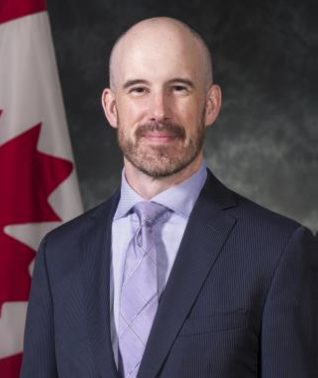Top bureaucrats say AI is ‘art of the possible’ in the public service

Canada’s top data bureaucrat offered up a “tasting menu” of where artificial intelligence is currently being used in the federal public service, as parliamentarians mull another attempt at legislating data and privacy.
Stephen Burt, chief data officer of Canada, said artificial intelligence is now being used by Immigration, Refugees, and Citizenship Canada to automate “millions” of positive visa applications.
“We’re seeing some really impressive techniques from the [Employment and Social Development Canada] in terms of how candidates for various benefits are identified and registered for those benefits,” he told a panel on artificial intelligence and the public service at All In, a two-day event about AI in Canada.
He also said AI is being used in Indigenous language preservation and stabilization, as well as monitoring done by Fisheries and Oceans Canada.
Transport Canada, too, has been able to use AI in screening air cargo coming into the country.
“Where they used to be only able to do six per cent annually of what was being shipped by air, now they do 100 per cent, based on automation and use of AI,” Burt said.

Hundreds of cases of artificial intelligence applications in the public service will soon be published in a searchable database, he added, in order to build “trust and transparency.” That coming AI registry was a key component in the government’s strategy on AI in the public service, which was published earlier this spring.
Burt said he recently received a first draft of the registry, which included 400 use cases of AI across the government, but cautioned that number will likely be revised down.
Ima Okonny, assistant deputy minister and chief data officer at Employment and Social Development Canada (ESDC), said Okonny said she looks at AI as “the art of the possible.”
“The work ahead of us is, how do we ensure we leverage AI in a way that’s responsible, ethical, inclusive, to really optimize the outcomes of all Canadians, regardless where you sit in this country, from coast to coast to coast?”
Okonny said ESDC developed a machine learning program during the COVID-19 pandemic, when the department was processing records of employment during a steep wave of job losses.

Officers were inundated with “unstructured data,” she said, but an in-house machine learning model was trained on the “millions and millions of records that were coming in,” she said. “And the power of that work was that we were able to clear lots of files really quickly, and we’ve now been able to leverage that model across other files in the department.”
The department’s work with artificial intelligence was done within the existing parameters of the Privacy Act, Okonny said.
Anna Jahn, senior director at Mila–Quebec Artificial Intelligence Institute, said existing privacy legislation needs to be updated.
“It is not adequate anymore to use,” she said.
AI and Digital Innovation Minister Evan Solomon (Toronto Centre, Ont.) teased the government is planning to introduce privacy and data legislation again, after two previous attempts died on the Order Paper. The most recent attempt, Bill C-27, which was first introduced in 2022, aimed to repeal parts of the Personal Information Protection and Electronic Documents Act, and to establish the Consumer Privacy Protection Act alongside the Artificial Intelligence and Data Act.
“I’m sure the devil is in the detail of exactly how we need to update it,” Jahn said, “I think this is something that is overdue and needs to happen.”
Burt noted when the Access to Information Act, sister legislation to the Privacy Act, was updated in 2019, a mandatory five-year review clause was added, meaning the minister responsible for the Treasury Board must regularly look at the legislation.
Burt said ministers don’t necessarily have to update the legislation every five years, “but you have to explain that you’ve done a review, and what it is that you’ve looked at, and what it is you’re going to do before the next five-year review,” he said. “So that’s brilliant, and it’s the same kind of thing we’re trying to do across the board … you need to have some kind of a forcing mechanism that says, ‘okay, we’re going to take a look at this after a certain amount of time.’”
Okonny said shortcomings in current legislation were discovered by ESDC during the COVID-19 pandemic. Provinces wanted data from the department, but data-sharing was forbidden by the legislation.
“It was very difficult, not because I was risk averse, but because the law said we could not share that data,” Okonny said, adding the solution ended up being to “tweak” the existing law.
She warned legislation changes must be “very intentional” and include consultation with Canadians.
“From a data mathematical perspective, it’s all exciting, but we also have to look at it from a human perspective. What does that mean for Canadians? What are the implications? What are the downstream impacts? So I think it’s that kind of horizontal and holistic exercise that needs to be thought through before jumping into changing the legislation.”
Lucy Heargraves, co-founder and CEO of Build Canada, said Canadians simply want the government to give the best service possible, in the most efficient way possible.
“Most Canadians give up more privacy rights by downloading an app on their iPhone than what we’re talking about on stage here, right?” she said. “I think the more we can think about not just the inputs, but what is the best way to deliver service to Canadians, I think we’ll start converging on the right solutions for that.”
mglass@hilltimes.com
The Hill Times






 LICENSING
LICENSING PODCAST
PODCAST ALERTS
ALERTS













